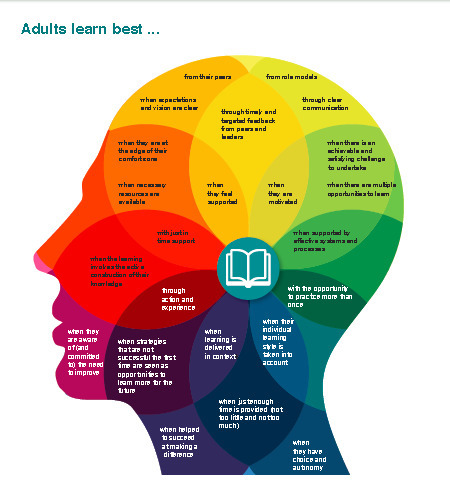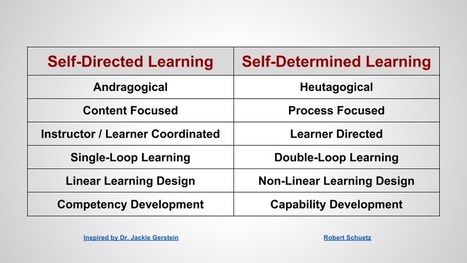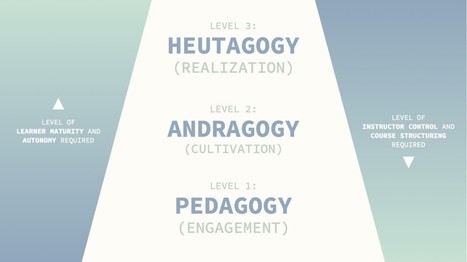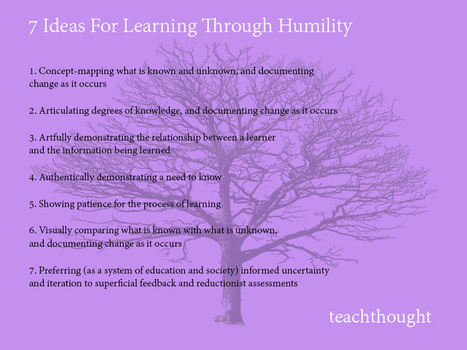While the coronavirus pandemic is a top-of-mind concern for learning professionals, professional growth should remain a priority.
Get Started for FREE
Sign up with Facebook Sign up with X
I don't have a Facebook or a X account
 Your new post is loading... Your new post is loading...
 Your new post is loading... Your new post is loading...

nuria's curator insight,
October 20, 2015 10:36 AM
añada su visión ...¡Cómo aprender a enseñar lo que se sabe eficazmente¡¡
Tony Palmeri's curator insight,
October 24, 2015 10:42 AM
I chose this resource because I was interested in seeing what the identified "core skills" that characterize an effective teacher are. I totally agree that "how to teach" is a skill and not necessarily a skill that is intuitive or easily learned. It must be taught intentionally to practitioners. Those directing the teacher education program identified 19 core skills that a novice teacher must have. Not surprisingly, many of these traits like "reflective practice" and designing an appropriate learning sequence are generic. I especially like the idea that we must interpret student thinking. Too often, when a teacher sees a struggling student they advise them of the "right way" to answer a question or solve a problem. But understanding a student's flawed thought process is valuable and it allows a teacher to attend to root problems that will hinder future learning.

Raquel Oliveira's curator insight,
December 1, 2014 7:05 AM
Heutagogia e o olhar sobre a aprendizagem do século XXI: 1- protagonizar a própria aprendizagem 2- educadores mantem foco no processo de aprendizagem ao inves do conteudo 3- evita-se aprendizagem focada no educador 4- migra-se para o "mundo da aprendizagem" 5- explora e aprende praticando auto escolha e acao auto direcionada 6- avancar alem da disciplina #avancee 
Tony Guzman's curator insight,
December 1, 2014 10:41 AM
This learning theory may be beneficial in certain settings. Anyone applying it already?

ManufacturingStories's curator insight,
September 23, 2014 11:05 AM
For more resources on STEM Education visit http://bit.ly/1640Tbl

António Leça Domingues's curator insight,
June 24, 2016 2:54 AM
Kit de desenvolvimento pessoal para professores.

Munira Mansoor's curator insight,
March 20, 2018 3:51 AM
This topic shows how to put professionalism in our Routine and get it accommodate in our work. |

Gust MEES's curator insight,
October 26, 2015 6:22 AM
Why in this day and age, it is important to become a “learning worker”, and that for me “learning to learn” doesn’t just mean “learning how to study” in formal courses. etc – although that’s a part of it, but nowadays it also means:
For me, this is the new work of learning professionals – one that involves helping and supporting individuals – rather than creating and delivering one-size-fits-all content! Learn more: https://gustmees.wordpress.com/2015/05/26/what-are-the-skills-needed-from-students-in-the-future/

Gust MEES's curator insight,
February 2, 2015 3:45 PM
In this age of abundance of information, shifting classroom pedagogy isn't nearly enough to make learning in school more relevant and authentic for the learner. Self-directed learning (andragogy), and self-determined learning (heutagogy) are the ideals necessary in making students "future ready" to live and learn in a web connected world. While original research applied these concepts to mature learners, it has become apparent that even young children have an abundant capacity for recognizing and directing their own learning. Anyone who has observed toddlers learning how to walk and talk understand the motivation and skill development that quickly develops during these processes. Considered by some to be on a learning continuum, self-directed learning and self-determined learning have at least one distinct difference. What is this difference, and why should educators care? - See more at: http://rtschuetz.blogspot.co.uk/2014/12/self-directed-vs-self-determined.html?spref=tw#sthash.oSVChVeN.dpuf Learn more: - http://www.scoop.it/t/21st-century-learning-and-teaching/?tag=andragogy - http://www.scoop.it/t/21st-century-learning-and-teaching/?tag=Heutagogy 
Dorote Lucci's curator insight,
February 3, 2015 12:56 PM
Great insights- this can be applied to other fields as well such as learning techniques to modulate stress and anxiety 
Shafeeq Husain's curator insight,
February 3, 2015 8:59 PM
Since "upwards of ninety percent of our learning will occur outside formal educational settings" (Jennings, 2010), in the age of abundance of information, students should be motivated to reflect on how they are learning. That is what is self-directed learning

Gust MEES's curator insight,
November 20, 2014 7:26 PM
This post is for educators who want to learn more about heutagogy and implement strategies that empower lifelong learners online. Learn more: - http://www.scoop.it/t/21st-century-learning-and-teaching/?tag=andragogy - http://www.scoop.it/t/21st-century-learning-and-teaching/?tag=Heutagogy 
Tim Hopper's curator insight,
November 25, 2014 12:18 PM
Interesting idea for ePortfolio pedagogy. Maybe the idea is to consider andragogy and heutagogy as distinct from pedagogy, or at least an evolution from it.

Chris Carter's comment,
July 10, 2014 11:36 AM
Humility makes sense. Socrates knew that he was ignorant, and therefor was ready to learn. If I think that I already know a thing, or do not need to know a thing, then my mind is closed to it. All learning starts from a point of ignorance, and then move to greater approximations of understanding until mastery.

Srimayee Dam's comment,
July 10, 2014 11:43 AM
Absolutely! Most are unable to do so, unwilling to learn .. Being ignorant is fine, but lack of humility won't ever help

umh1467's curator insight,
July 11, 2014 4:57 AM
Es evidente que sólo si crees que puedes aprender lo harás. |







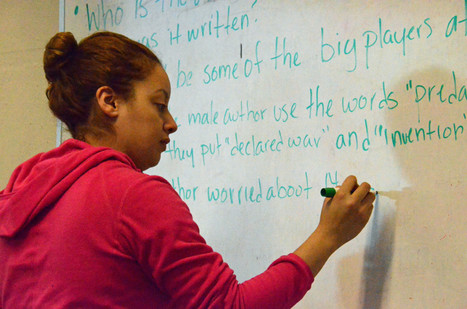



![The next generation of education system [Infographic] | Higher Education Teaching and Learning | Scoop.it](https://img.scoop.it/4XDm1xSu3uq0iMSxXHAo8Dl72eJkfbmt4t8yenImKBVvK0kTmF0xjctABnaLJIm9)

